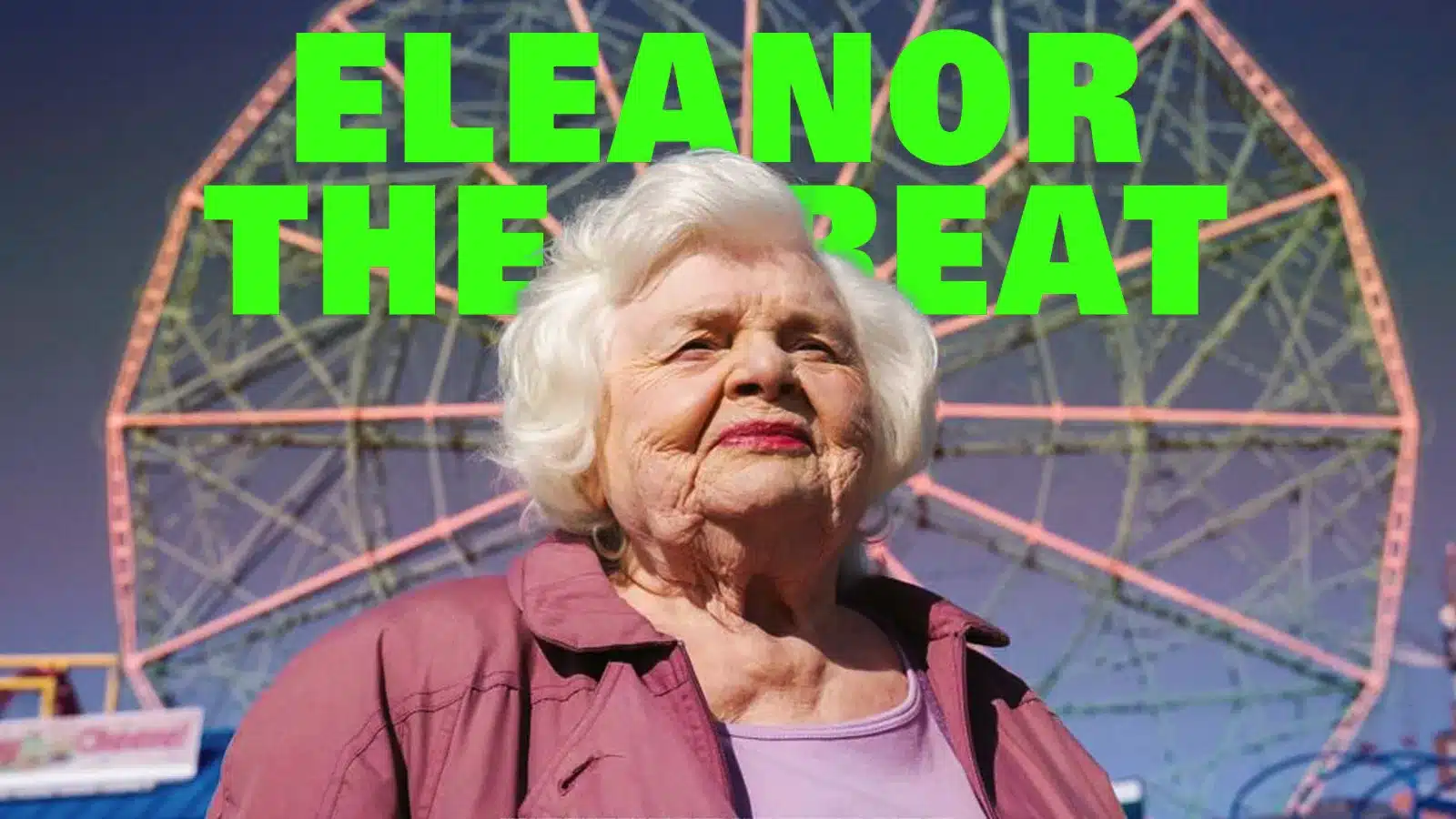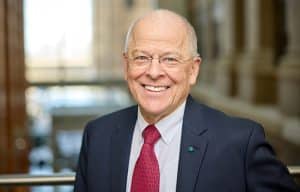Eleanor the Great | Movie Review

When I left this film last week, I said, out loud, “Good for you, Scarlett Johansson! Well done!” Eleanor the Great is one of those rare films that sneaks up on you.
What begins as a quirky character piece about a sharp-tongued nonagenarian slowly unfolds into something far richer—funny, touching, occasionally uncomfortable, and ultimately unforgettable.
Anchored by a career-best performance from June Squibb, the film marks an impressive directorial debut from Johansson, who proves she’s just as capable behind the camera as she is in front of it. And God bless her for telling this lovely story and nabbing Squibb to star!
The story follows 94-year-old Eleanor Morgenstein (Squibb), who is forced to leave her longtime home in Florida and return to New York after the sudden death of her best friend, Bessie (Rita Zohar). She moves in with her daughter Lisa (Jessica Hecht), and the transition is far from smooth.
The newly-divorced Lisa is busy, tired, and clearly overwhelmed—something Eleanor meets with a biting, relentless commentary that at first feels grating. Their early scenes together suffer slightly from the lack of warmth; Eleanor’s sniping can feel like a bit too much, and we could use a flicker of affection to soften their dynamic. Without it, Eleanor risks coming off less like a complex, grieving woman and more like a one-note character who likes the attention attached to being cantankerous. Thankfully, as the film progresses, the relationship finds its footing.
Feeling invisible and unwanted, Eleanor seeks purpose and connection. She begins attending activities at the local Jewish Community Center, including a singing class Lisa signs her up for. But in an awkward mix-up, Eleanor stumbles into a support group for Holocaust survivors—and instead of correcting the error, she impulsively claims Bessie’s survival story as her own. What could have been a tone-deaf premise turns into something surprisingly poignant, largely thanks to Johansson’s direction and Squibb’s nuanced portrayal.
Eleanor’s deception brings unexpected consequences, especially when she meets Nina (Erin Kellyman), a 19-year-old journalism student eager to write an article about Eleanor’s “experiences.” As their unlikely friendship blossoms, Eleanor begins to reengage with the world—though not without a fair share of complications.
Rita Zohar leaves a lasting impression as Bessie, who remains an integral and important part of the story throughout the movie. Zohar’s monologue recounting her escape from Nazi’s is alone worthy of an award.
The ensemble is strong across the board. Erin Kellyman is charming and grounded, and Chiwetel Ejiofor brings a calm, steady presence to his scenes, offering a welcome counterbalance to Eleanor’s chaos. Jessica Hecht brings nuance to a difficult role, and is able to show us that she loves her mother, despite their strained relationship. It’s a truly notable supporting cast that elevates the material at every turn.There’s an especially affecting smaller performance from Lauren Klein as Vera, who unknowingly draws Eleanor into a situation she can’t get out of, and plays each scene she’s in remarkably.
That said, the film isn’t without its rough edges. A scene involving Eleanor and a bewildered store clerk plays too broadly (she’s a little too much) and feels out of step with the film’s otherwise subtle tone. It’s the kind of scene many movies would lean into for an easy laugh, but here, it feels a little like a misfire in a film that’s otherwise more interested in character than caricature.
Still, Eleanor the Great avoids the common pitfall of leaning too heavily on crass humor when it comes to aging characters. Johansson allows Eleanor’s eccentricities to be odd and even bold, but never ridiculous. There’s a surprising amount of tenderness in how her quirks are handled, and Squibb matches that tone beautifully. Her performance is both grounded and quietly fearless. She has impeccable comedic timing, yes—but it’s her stillness, her unspoken grief, her rare but potent emotional revelations that make the character unforgettable.
As I said, “Good for you, Scarlett Johannsen!” We can only hope that more scripts cater to actors of the older generation and give them classy outlets for their still viable talent.It goes without saying that roles for actresses of this age are rare, but thank goodness directors are finding things for June Squibb to do; and she proves here that she definitely has the chops to not only steal scenes, but lead a cast in a starring role.. Expect to see her name come up during awards season (there’s already buzz)—and hopefully that of Rita Zohar and as well.
Ultimately, Eleanor the Great is a story about reinvention, regret, and finding connection when the world seems to have moved on without you. It’s funny and odd in all the right places, but never loses sight of its emotional core. It’s not perfect—but it is special.
Eleanor the Great is rated PG-13 for thematic elements, some language, and suggestive references and runs 1 hour and 38 minutes. It opened in theaters Sept. 26. My Grade: A-






